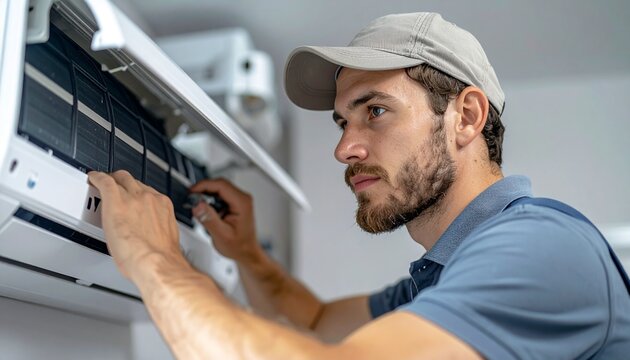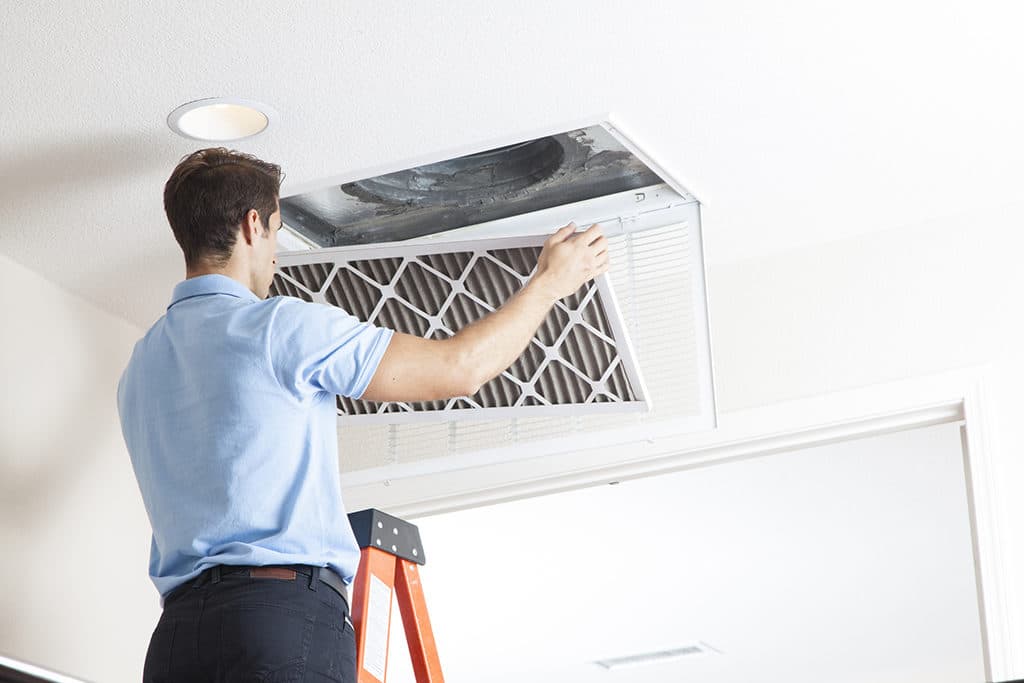Dealing with a smelly HVAC system can be a challenging task for both homeowners and business owners. The primary keyword, smelly HVAC system checklist, is crucial in understanding the causes and solutions for odors that may arise. In this article, we will delve into the various aspects of maintaining a fresh and clean HVAC system.
Before diving in, it’s important to note that a smelly HVAC system can affect the overall air quality of your home or office. Therefore, addressing these issues promptly is essential for a healthy living environment.

Understanding the Causes of HVAC Odors
Many factors can contribute to a smelly HVAC system. Identifying the root cause is the first step towards finding an effective solution. Some common causes include:
Mold and Mildew Build-up
Mold and mildew are notorious for causing musty odors in HVAC systems. This can occur when excess moisture accumulates in the ducts or air handler.
Dirty Air Filters
Over time, air filters can become clogged with dust, dirt, and other debris, leading to unpleasant odors. Regularly changing your air filters can help prevent this issue.
Blocked Drain Lines
Blocked or clogged drain lines can cause water to back up, resulting in mold growth and odors. Regular maintenance and cleaning are essential to avoid this problem.
Creating an Effective Smelly HVAC System Checklist
Having a smelly HVAC system checklist is essential for ensuring that all potential odor sources are addressed. Here are some steps to include in your checklist:
Regular Inspection and Maintenance
Regular inspection of the HVAC system is crucial. This involves checking for signs of wear and tear, leaks, or any unusual smells.
Cleaning Air Ducts
Air ducts should be cleaned regularly to remove dust, mold, and other debris. For tips on how to clean ducts effectively, check out this cleaning guide.
Replacing Air Filters
Ensure that air filters are replaced every 1-3 months depending on usage. Clean filters improve air quality and reduce odors.
Checking for Mold and Mildew
Regularly inspect areas prone to moisture for mold and mildew growth. Addressing these issues early can prevent long-term damage.
Advanced Solutions for Persistent Odors
Sometimes, basic maintenance is not enough to eliminate odors. In such cases, consider the following advanced solutions:
Professional HVAC Cleaning
Hiring a professional to clean your HVAC system can ensure a thorough job. They have specialized tools and expertise to handle complex issues.
Upgrading to High-efficiency Filters
High-efficiency filters capture more particles and help in reducing odors. Consider upgrading if persistent smells are a problem.
Installing UV Light Systems
UV light systems can be installed within the HVAC system to kill mold and bacteria, thus eliminating odors at the source.
Preventive Measures to Avoid Future Odors
Preventing odors is much easier than dealing with them after they occur. Here are some preventive measures:
Humidity Control
Maintaining proper humidity levels can prevent mold growth. Use dehumidifiers if necessary to control indoor moisture.
Regular HVAC System Checks
Conduct regular checks of your HVAC system to catch any issues early. Learn more about what tools are used in these checks here.
Proper Ventilation
Ensure adequate ventilation throughout your home or office to prevent stale air and odors from accumulating.

Frequently Asked Questions
What causes a smelly HVAC system?
A smelly HVAC system can be caused by mold, dirty air filters, and blocked drain lines, among other factors.
How often should air filters be replaced?
Air filters should be replaced every 1-3 months, depending on the level of use and air quality.
Can I clean my HVAC system myself?
While basic cleaning can be done by homeowners, professional cleaning is recommended for thorough maintenance.
For more information on handling odors in your HVAC system, visit this external resource.
This article contains affiliate links. We may earn a commission at no extra cost to you.